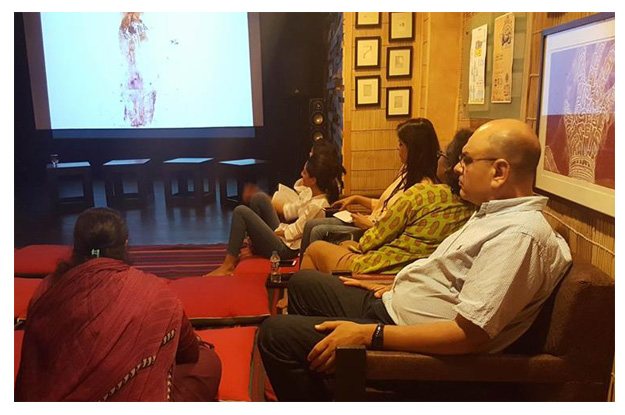
The event was organised by That Feminist Collective in collaboration with Olomopolo Media. The discussion covered the feminist manifesto signed by a number of women artists in 1983, and the challenges faced by them in depicting body and sexuality in their work.
Artists Farida Batool, Masooma Syed and Ayesha Jatoi talked about the issues with reference to their own experience. This followed an interaction with the audience. Jatoi said artists and art educators had protested against Islamisation in the ‘80s. “They were criticised for encouraging their students to pursue ‘feminist art’, and to protest.”
She said art teachers at that time had to be careful how they went about feminism. They were discouraged for “radicalising” their students, Jatoi said.
“It is something we come across at the NCA even these days,” Jatoi said. Batool said that the manifesto declared that it was the right of all artists to draw and create whatever they deemed true. The state could not control that, she said. “Landscape paintings and calligraphy became a metaphor for a happy, prosperous and green Pakistan. Such work would be sponsored and supported by the government,” Batool said. She said the artists wanting to bring forth their own ideas did not get any support from the state. About nude art in Pakistan, Jatoi said feminists in the country had fought for the right to show whatever they wanted to… but not in a commercial way or as a consumable item. “Male artists usually focus on creating nudes in a way that somehow caters to male gaze. I feel that a woman’s body is not to be taken up this way,” she said.
Masooma Syed presented some slides on Aisha Kahlid’s work. There was a series on ‘burqa culture’ criticising the concept of chadar and chardiwari.
Syed said that the work was inspired by an incident in her family [a cousin of hers was burnt alive over a dowry-related issue].
Syed also presented work of Rubi Chisti who made art pieces out of sanitary napkins… depicting her struggle with her decision to not have kids. She said Chisti’s work covered the way the society behaved when a girl was born.
Published in The Express Tribune, May 10th, 2016.
1722510908-0/jax-(1)1722510908-0-405x300.webp)




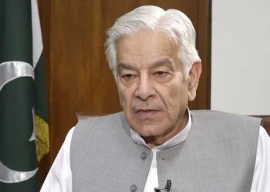
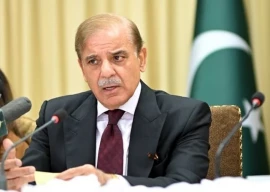


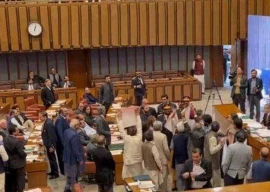
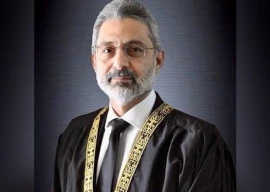
1725083820-0/Untitled-design-(24)1725083820-0-270x192.webp)



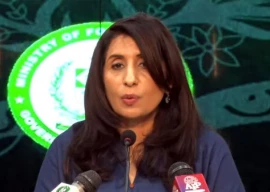







COMMENTS
Comments are moderated and generally will be posted if they are on-topic and not abusive.
For more information, please see our Comments FAQ